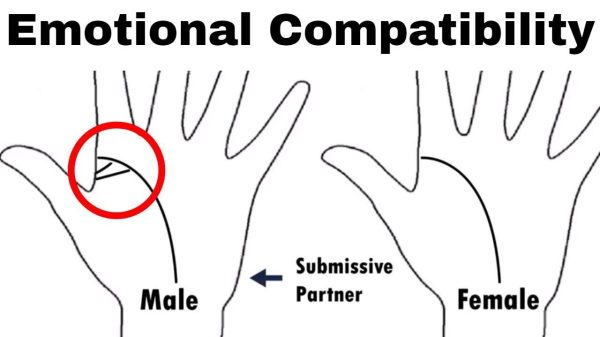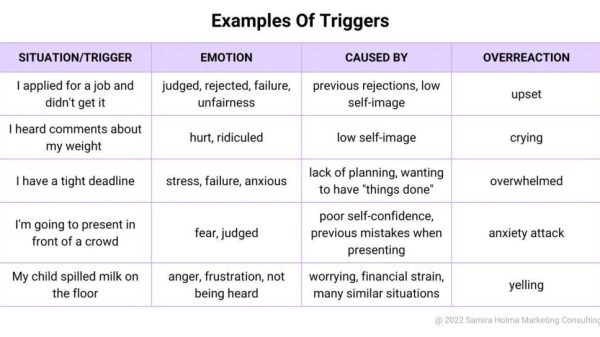In the intricate tapestry of human relationships, few threads are as delicate as trust. When emotional betrayal frays this vital connection, couples are often left navigating a labyrinth of hurt, confusion, and doubt. Can the heart truly mend after such a profound rupture, or do these emotional scars linger beneath the surface, subtly influencing future interactions? This article delves into the complex journey of healing after betrayal, exploring the psychological pathways to recovery and the resilience of love. By examining both expert insights and real-life stories, we aim to uncover whether couples can truly find their way back to a place of mutual trust and understanding, or if some wounds are destined to remain as shadows in the relationship’s history.
Rebuilding Trust Brick by Brick: Navigating the Path to Healing
Healing after an emotional betrayal is a journey that demands patience, understanding, and mutual effort. Couples embarking on this path often find themselves navigating a labyrinth of emotions, where each step is as crucial as the last. Communication becomes the cornerstone, allowing both partners to express their feelings and fears openly. This process is not about rushing to the finish line but rather laying down each brick with care and intention. Couples may find it helpful to establish a safe space for dialogue, where blame is replaced by empathy, and silence by understanding.
In this complex process, several key elements can aid in rebuilding trust. Consider incorporating these practices into your journey:
- Honesty: Prioritize transparency, even when it’s uncomfortable.
- Consistency: Demonstrate reliability through small, everyday actions.
- Forgiveness: Allow space for mistakes, and be willing to forgive.
- Shared Goals: Align on a vision for the future that both partners can commit to.
While the path to healing is unique for every couple, embracing these principles can create a sturdy foundation upon which trust can be rebuilt, one brick at a time.

Understanding the Emotional Turmoil: The Psychology Behind Betrayal
At the core of emotional betrayal lies a complex web of psychological responses. The feelings that arise from betrayal are often intense and multifaceted, leaving individuals grappling with a myriad of emotions. These responses can include:
- Shock and Disbelief: The initial reaction often involves a sense of disbelief, as the mind struggles to comprehend the breach of trust.
- Anger and Resentment: Once the reality sets in, feelings of anger can surface, directed both at the betrayer and oneself.
- Sadness and Grief: The loss of trust can feel akin to a bereavement, evoking profound sadness.
- Anxiety and Insecurity: The fear of future betrayals can lead to heightened anxiety and a sense of vulnerability.
The psychological impact of betrayal is profound because it disrupts our fundamental need for security and trust. Betrayal triggers a reevaluation of one’s self-worth and the relationship’s dynamics, often leading to an internal battle between the desire to repair the relationship and the instinct to protect oneself from further harm. Understanding these emotional undercurrents is crucial for couples seeking to navigate the turbulent waters of healing and reconciliation.

Effective Communication: The Cornerstone of Reconciliation
In the aftermath of emotional betrayal, the path to healing is often paved with the intricate art of communication. It requires not only words but also the genuine intention to understand and be understood. Effective communication becomes the linchpin that holds the fragile pieces of trust together, facilitating a journey towards reconciliation. Couples must navigate the turbulent waters of hurt and confusion by embracing open dialogue, where feelings are expressed without fear of judgment and vulnerabilities are shared with the hope of being met with empathy. This form of communication is not merely about speaking but also about listening—truly listening—to the unspoken fears and aspirations of one another.
- Active Listening: This involves paying full attention, showing empathy, and providing feedback, ensuring that both partners feel heard and valued.
- Expressing Emotions: Encouraging the expression of feelings without reproach helps in reducing resentment and building emotional intimacy.
- Setting Boundaries: Establishing clear and respectful boundaries can prevent misunderstandings and protect the emotional well-being of both partners.
- Seeking Clarification: When in doubt, asking for clarification can prevent assumptions that may lead to further conflict.
By committing to these practices, couples can slowly rebuild the trust that was shattered, creating a new, more resilient foundation for their relationship. This journey is neither easy nor swift, but through patience and a shared commitment to communicate effectively, healing becomes a tangible possibility.

Seeking Professional Help: When to Consider Couples Therapy
Recognizing the need for professional guidance can be a pivotal step for couples grappling with emotional betrayal. This form of betrayal often leaves deep scars, impacting trust and communication. Couples therapy can offer a structured environment where both partners can explore their emotions and the roots of their conflicts. It provides a safe space to confront issues that may seem insurmountable when faced alone. The following signs may indicate the need to seek professional help:
- Persistent feelings of anger or resentment that disrupt daily life.
- A noticeable breakdown in communication, where conversations often lead to misunderstandings or conflict.
- The inability to forgive or move past the betrayal despite sincere efforts.
- Emotional detachment or a growing distance between partners.
Engaging with a therapist can also help couples develop effective strategies to rebuild trust and establish healthier communication patterns. It allows for the exploration of each partner’s individual experiences and emotions, fostering a deeper understanding and empathy that can be crucial for healing. By acknowledging the impact of betrayal and working through it with professional support, couples can strive towards a renewed and resilient relationship.








